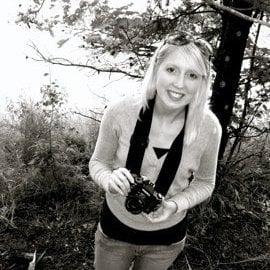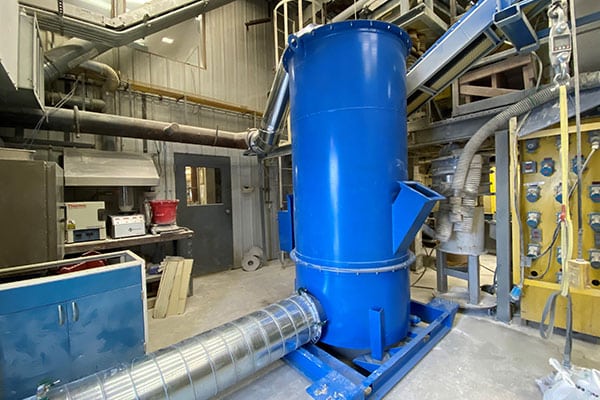One of the most challenging aspects buyers face in the purchase of capital equipment is ensuring the equipment can meet their process and material objectives. The same holds true for fluid bed dryers, which are widely used throughout various industries to dry bulk solids in the form of chemicals, fertilizers, minerals, and more.
The flexibility of fluid bed dryers lends them to a range of applications, but ensuring the fluid bed dryer is a good fit, and then properly sizing and designing it to meet process and material goals requires a bit of extra ground work in the form of testing and process development.
To de-risk the investment and establish critical operating data for scale-up, FEECO offers those interested in fluid bed dryers the opportunity to test their intended process in the FEECO Innovation Center.
Fluid Bed Dryer Testing Capabilities
Whether looking to dry a novel material, improve product quality, or otherwise, testing in the Innovation Center offers the opportunity to not only confirm feasibility, but also to develop the parameters necessary to meet project goals on a commercial scale.
Testing can be conducted at batch or pilot scale, depending on the specific needs of the project and what is already known about the intended process. In most cases, testing begins with batch testing to confirm initial feasibility and moves on to pilot-scale testing to refine the process.
Batch Fluid Bed Dryer Testing
Batch-scale testing is typically conducted to confirm that the representative source of feedstock could be dried in a fluid bed dryer. Testing at batch scale can also identify the potential need for pre-treatment such as particle size reduction or material conditioning.
Batch-scale testing also gives producers an important look at how their material responds to fluidization and what modifications may be necessary to achieve the best result. Two fundamental data points established during batch testing set the stage for further development work:
Minimum Fluidization Velocity
The minimum velocity required to achieve fluidization of the material bed.
Heat Transfer Coefficient
The rate of heat transfer between the material and surrounding gas.
During this stage, various fluidization regimes may be experimented with to determine the most suitable approach to drying their specific material. Cut size and the amount of elutriation likely to occur may also become apparent at this stage.
Pilot-Scale Fluid Bed Dryer Testing
While batch-scale testing focuses on establishing feasibility and gaining a familiarity with the material and its response to drying by fluidization, pilot-scale testing focuses on refining the drying process and gathering essential process data.
Refining the Fluid Bed Drying Process
Refining the drying process centers around honing in on the specific combination of process parameters that will yield a product with the desired specifications. In this regard, numerous process variables may be experimented with, including:
- Air flow velocity
- Bed distributor plate configuration
- Percent fill
- Feed & product flow rates
- System pressure
- Residence (retention) time
- Temperature profile
- Additional modifications to the dryer configuration
Numerous product specifications may be targeted during this time:
- Attrition
- Baghouse efficiency
- Bulk density
- Uniformity of moisture content
- Compression
- Crush strength/Hardness
- Flowability
- Green/Wet strength
- Temperature
Also during this time, producers can work with the Innovation Center team members to troubleshoot any potential issues that arise, such as the occurrence of weep, or short circuiting (when product contains both fully dried and undried solids).
Gathering Process Data
In addition to vetting the process and establishing process criteria, the testing process also gives producers a window into operating costs and other factors they will need to consider in implementing a fluid bed dryer. This includes estimating energy costs, identifying the need for pretreatment (if any), establishing horsepower requirements, and even determining off-gas treatment requirements, among other things.
Materials Commonly Tested in a Fluid Bed Dryer
Fluid bed dryers are capable of processing a range of bulk solids. They are widely used in processing everything from agrochemicals and fertilizers to minerals and animal feeds. While these are well-established industries, testing may still be conducted to establish drying parameters around the specific source of material or product formulation. This might include testing around materials such as:
- Adsorbents
- Catalysts
- Ceramics
- Fertilizers and soil amendments
- Glass
- Pigments
- Plastics
- Resins
- Salts
Of course, testing is also widely employed in the application of fluid bed dryers in novel applications. Increasingly, fluid bed dryers are being considered for drying sources of biomass such as manure, bagasse, crop residues, forest product residuals, and more. While these materials will often require pretreatment in order to yield a suitable feedstock for fluid bed drying, the low cost of a fluid bed dryer makes up for any incurred costs.
Bulk Solids Drying Expertise
As FEECO is a leader in bulk solids drying offering both fluid bed dryers and rotary dryers, the Innovation Center is unique in that in addition to testing with a fluid bed dryer, customers can also opt to test their material in a rotary dryer.
Fluid bed and rotary dryers are often vetted together in the selection of an industrial drying system, making this a valuable opportunity to compare the two technologies side by side.
Conclusion
Producers evaluating the incorporation of a fluid bed dryer into their new or existing process can de-risk their investment through batch and pilot testing. The FEECO Innovation Center is uniquely equipped to not only establish feasibility, but also to gather the data necessary for scale-up. For more information on our fluid bed dryers and testing in the Innovation Center, contact us today!



